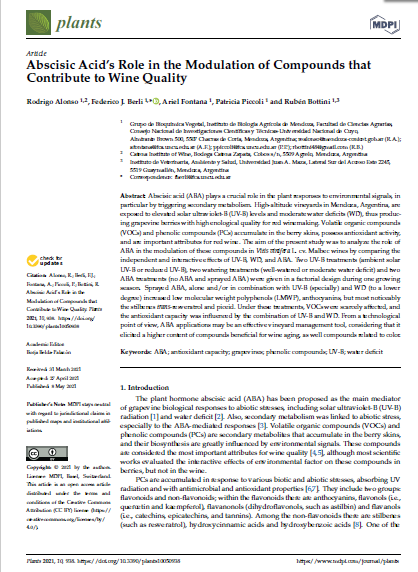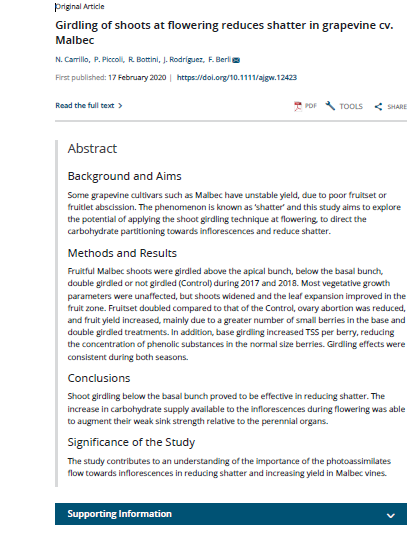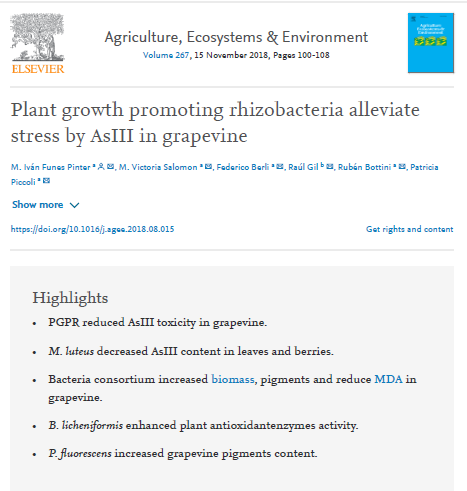Browsing by Author "Berli, Federico"
Now showing items 1-3 of 3
-
Abscisic Acid’s Role in the Modulation of Compounds that Contribute to Wine Quality
Alonso, Rodrigo; Berli, Federico; Fontana, Ariel; Piccoli, Patricia; Bottini, Rubén (Comité Editorial Plants Journal, 2021-05-08)Abscisic acid (ABA) plays a crucial role in the plant responses to environmental signals, in particular by triggering secondary metabolism. High-altitude vineyards in Mendoza, Argentina, are exposed to elevated solar ultraviolet-B (UV-B) levels and moderate water deficits (WD), thus producing grapevine berries with high enological quality for red winemaking. Volatile organic compounds (VOCs) and phenolic compounds (PCs) accumulate in the berry skins, possess antioxidant activity, and are important attributes for red wine. The aim of the present study was to analyze the role of ABA in the ... -
Girdling of shoots at flowering reduces shatter in grapevine cv. Malbec.
Carrillo, Natalia; Piccoli, Patricia; Bottini, Rubén; Rodríguez, José; Berli, Federico (Comité editorial Australian Journal of Grape and Wine Research, 2020-02-17)Background and Aims Some grapevine cultivars such as Malbec have unstable yield, due to poor fruitset or fruitlet abscission. The phenomenon is known as ‘shatter’ and this study aims to explore the potential of applying the shoot girdling technique at flowering, to direct the carbohydrate partitioning towards inflorescences and reduce shatter. Methods and Results Fruitful Malbec shoots were girdled above the apical bunch, below the basal bunch, double girdled or not girdled (Control) during 2017 and 2018. Most vegetative growth parameters were unaffected, but shoots widened and the leaf ... -
Plant growth promoting rhizobacteria alleviate stress by AsIII in grapevine.
Funes Pinter, Mariano Iván; Salomón, María Victoria; Berli, Federico; Gil, Raúl; Bottini, Rubén; Piccoli, Patricia (Comité Editorial Agriculture, Ecosystems and Environment., 2018-11-15)Arsenic (As) in the environment is an increasing problem all over the world that limits crop yield, and therefore, remediation strategies like inoculation with plant growth promoting rhizobacteria (PGPR) are necessary. The objective of the current study was to assess PGPR ability to reduce AsIII toxicity in grapevine (Vitis vinifera L. cv. Malbec). Two-year old grape plant-sprouts grown in 10 L pots were inoculated weekly with Bacillus licheniformis, Micrococcus luteus, Pseudomonas fluorescens, a consortium of the three strains, or water (control). Plants were irrigated with water (-As) or a 50 ...












